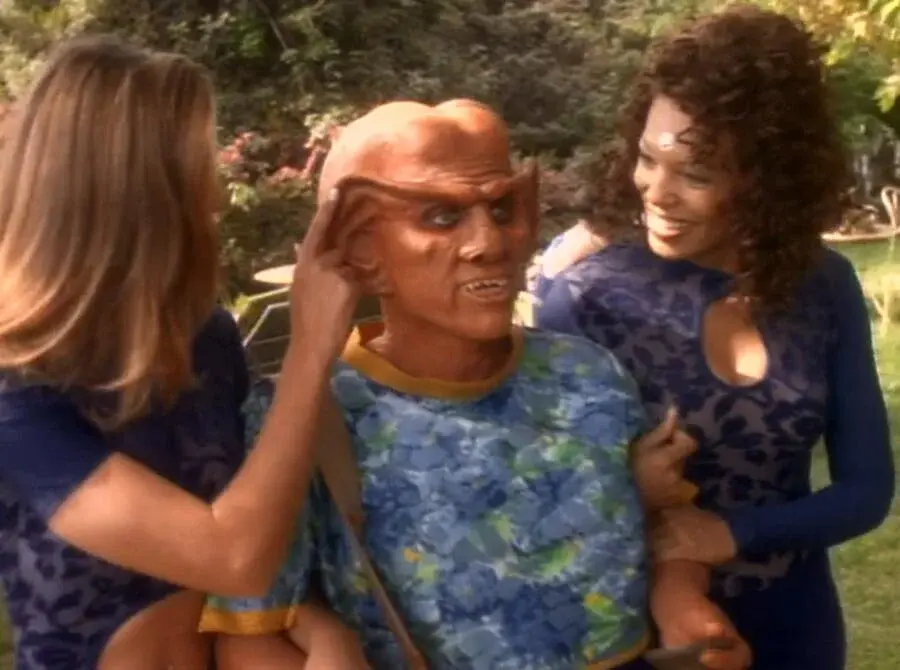Gandalf is the player that insisted on playing a wizard but never bothered learning their spells past cantrips and keeps rolling a d12 instead of a d20, but no one notices.
I’d say Gandalf is probably more like the dm self insert NPC that does exactly enough to move the story where it needs to go. He doesn’t use most of his spells because he wants the players to be the ones affecting change. And he suffers from the balrog because the party rolled low on the situation they were supposed to get out of. And Gandalf comes back because the dm said so and it made for an epic twist.
The main supporting parts of that are that Gandalf is the avatar of a Maia, which is kind of like a meta character already. Sort of like having a god in disguise. Not something a dm would allow for a player. As well as gandalfs explicit goal to not be the the pivotal being affecting change, but to push other major actors into doing it.
And lastly, the piece of trivia that Gandalf wasn’t supposed to play a bigger role in the hobbit (which came before lotr was written as an epic sequel, and was mostly a story for his kids) than basically a bumbling old sarcastic wizard, brings the concept that the dm just called back a character from a previous campaign.
Best LoTR - DnD adaptation of Gandalf I’ve read so far. Couldn’t agree more.
I know it’s a meme and all, but I feel like good jokes need to be rooted in a bit of truth otherwise it’s just… Stuff you say for no reason? And this is that. Are we forgetting all the times he was instrumental? Dude was like the most influential character. Nudging so many different people in the right direction. Not to mention the Balrog or how he protected frodo from the eye when he put the ring on at amon hen, the Jedi mind tricks used on saruman, etc
But, it’s interesting how he’s so different from the “mage” of other fantasy / D&D.
For example, he uses a sword along with his staff. He’s the most powerful mage, and yet he needs a sword?
Also, he doesn’t seem to use any direct-damage magic. He doesn’t throw fireballs, he doesn’t cause enemies to be hit by lightning. He also doesn’t directly create illusions. Most of what he does is very subtle. He claims he can read minds, he gives ponies greater stamina, he opens doors, he lights or extinguishes fires, but mostly for lighting not for damage.
That’s partly because most of this stuff precedes modern fantasy media and also because Tolkien said that Gandalf isn’t actually a wizard it’s just that to him wizard was the closest word he could find to describe him. As back then wizard just meant very wise person, afaik. A more apt term for him nowadays would be “sage”, I guess? Dunno. Also, Gandalf isn’t human, he’s a celestial being and he’s not allowed(?), I think, to use the full extent of his powers. Either way, yeah… the more I learn about Tolkien’s work the more interesting it becomes.
Well, way back when, wizard just meant wise man (wise + -ard). The connotation with magic is centuries older than Tolkien, though.
Actually, ard is a negative suffix, as in drunkard, sluggard, etc…
Wizard meant wise guy.
Actually, that’s where it comes from anyway.
I meant actually as in fun fact, not correction, sorry.
But, it’s interesting that Gandalf inspired decades of mage / wizard characters who broadly shared common themes: using magic to do direct damage, not wearing armor, not using swords, being physically unimposing, often being old men, etc.
How different would modern fantasy and TTRPGs be if people had been inspired by different parts of Gandalf’s character. Like, we might expect Wizards / Sages to lead an army’s charge, despite not wearing armor or doing direct damage. A typical fantasy wizard / mage hangs back and lets the people in armor lead the charge. We might expect them to have incredible perception, seeing very clearly, sensing danger nearby, etc. A typical fantasy wizard / mage / sorcerer is focused inward and often the least perceptive one in a group. We might expect them to be physically fairly strong, at least enough to fight with a sword. We might expect them to be loners, rather than wanting to join adventuring parties. We might expect them to do mostly cleric-ey things like heal people, boost morale, strike fear into others, etc.
Instead, people adopted the physical appearance (minus the sword) and tacked on a lot of direct-damage magic. For TTRPGs that makes sense because you can’t have a character who’s both physically imposing, extremely charismatic, able to fight with a sword, and also capable of using magic. That’s just too powerful for one character. But, I also can’t think of many fantasy books or movies that have a strong, perceptive, brave sage/wizard character.
Actually, he does turn pinecones into little fireballs in The Hobbit. At least in the book, I don’t remember if that was in the movie. Nothing like the Fireball spell in D&D, though.
Not to mention the fire magic used to burn and scare the goblins when they were captive of the goblin king.
The pinecones were pretty awesome at burning the wolves too the way it magically spread amongst them if they touched.
Well, it’s obvious. He isn’t a humanoid spellcaster, he’s a celestial. Quite literally. In this book’s frustrating diversion from established D&D terminology, the humanoids simply call celestials wizards.
Lord of the rings predates D&D though.
Yes I’m aware Lord of the Rings is not D&D fanfic, thanks. Twas a joke.
My bad, you never know on the interwebz _’
I think it’s mildly funny how when WotC got their hands on some LotR rights to make MtG cards, they still typed Hobbits as halflings.
But then the halfling token for the set is labeled as Tolkien Creature - Halfling instead of Token Creature - Halfling.
It’s like this dude only knows prestidigitation, detect thoughts, and create fire. Gandalf level 1 wizard confirmed.
I now kinda want to play a wizard who only uses cantrips for some convoluted reason
The reason could be that he’s illiterate
As well as his great (magic?) time management skills that allow him to arrive precisely when he means to.
I mean, it’s pretty bright.
It drove them off. Sounds like Gandalf is a pro who knows exactly how much mp to spend.
Guy used his channel divinity charge to repel nine legendary undead and people are bitching about the light show
Lord of the rings lore is incredible, which is an oddly obvious thing to say, but the aspect that I love most is Tolkien’s take on divinity. Specifically that enacting magic necessarily requires a divine being to permanently surrender a piece of themselves as fuel. Every piece of magic performed amounts to irreversible self mutilation. This further develops several characters, but none more beautifully than Saruman who was stripped to nearly nothing in the end. He chose middle earth as his home and lost it, his friends whom he cherished, and the overwhelming majority of his being. He created his own hell out of cowardice first and greed second.
Is that right? I’ve read a fair number of the supporting works and that doesn’t ring a bell, so where is that said.
I thought it was more that Gandalf’s job was not to wade in and use might and magic to sort things out for the residents of middle earth - instead his brief was to be a mentor and catalyst, using minimal magic except at need.
The diminution of Saruman wasn’t because he spent all day magicing things up.
That’s how the evil boys became wisps- by pouring their being into arda. Saruman became diminished by expediting the creation of orcs, Sauron hollowed himself out creating the ring, and Morgoth spent his soul making femboys into ugly bastards (and flame demons). And you’re correct, but my comment was already long enough to dissuade most from reading it so I cut detail. No one reads multi-paragraph comments on checks notes /c/greentext.
Got a reference for that? I’ve read tons of Tolkien’s stuff surrounding the world building of Middle Earth, but I don’t recall the exchange of self for magic usage.
There isn’t one. In classic internet forum fashion sone makes something up, forgets it, half-remembers it and then promotes it as fact.
There’s a lot of lore regarding Tolkien’s world, I easily could have missed something. Many other universes that use magic definitely have a quid pro quo cost for that usage, and I wouldn’t be surprised if there were something in the LOTR universe that mentions it in passing. There’s quite a bit about Gandalf’s magic usage (or mostly lack thereof, for such an incredibly powerful character his usage is very sparing) and I’d be curious if there’s a canon writing from Tolkien that backs up the reasoning for that, like loss of life energy or whatever.
If there is, it’s not in The Hobbit or LotR itself. Silmarillion is impenetrable to me, so idk.
I’ve read the Silmarillion twice, and it’s sort of the “Genesis” story and Old Testament of the LOTR world. All the Old Gods, their squabbles, creation of Elves, Dwarves, Men, etc. I don’t think I would have missed the exchange of magic for life, though there is definitely an inferred consequence that use of magic takes a toll like overexerting oneself, especially when battling another magical being, but that seemed more of a plot tool used to arrange characters as needed. Plenty of evidence that baddies keep coming back and get stronger, and also some evidence that lack of magical beings in the world makes the world less magical as a whole - iow, this world doesn’t have permanent magic affixed to the place, it almost seems like it needs believers and practitioners for it to exist, and as they die or depart West, magic ceases to functionally exist along with the “ascent of Man” at the end of LOTR.
I honestly can’t recall. It’s been decades since I’ve read anything from Tolkien.
Plenty of fictional universes do exact a price from the magic user for their power, perhaps you got another entwined with Tolkien’s work? Either way, if you recall it, I’m interested in seeing any reference.
Don’t call me out like that. I read your comments but the person above you idk what they said after the first paragraph and had to go back in shame. The line breaks kill me for some reason
you got me in the first half I’m not gonna lie
Morgoth did legitimately create ugly bastards from femboys. He warped the song of creation, causing orcs to come about- orcs who would otherwise have been salivatingly androgynous elves. Eru illuvatar was quoted as saying “not bad.” Genuinely canon, albeit paraphrased.
Don’t forget when he hits orcs with his staff.
Why Everyone Hates Wizards by Mattias Pilhede
This has nothing to do with the actual video, but I feel like wizards suffer from the same issue as super heroes and anime characters do.
Like, yeah, it’s cool what they can do. But also, they’re practically invincible. No matter what situation they get into, you just know they’ll have some spell / super power / forbidden technique to get themselves out of it.
That’s only a problem of bad writing. In good writing, even the most powerful beings can be threatened. Good writing has internal logic and conflict. You cannot have either with the shitty kind of, “I snap my fingers and fix it” magic BS you reference.
At the end of the day, ALL of fiction suffers from the problem. Outside of fantasy, Plot Armor still exists. Any poorly written character can become uncompelling.
Tolkien’s magic can’t do everything, and that’s its strenght.
Eh, the sourcerresses in the Witcher books, while powerful found themselves in situations where there was no chaos, a leftover from an event long ago around them to feed their spells from. And moving too large amounts of energy in a short time always left them physically weak and could even lead to injury if done hastily or wrong. I liked that concept.
Huh. Won’t play on my mobile Firefox.
It’s been broken for months atleast. I’ve never seen it work on mobile firefox
Piped is meant to avoid Google’s tracking, yet requires a chromium browser to work.
Kinda sad
Here’s the YT link (note it’s easy to change between them, and no www on the piped link).
And yeah, even on desktop I find the alternatives hit-or-miss often for stability or different reasons.
Works on roaches












